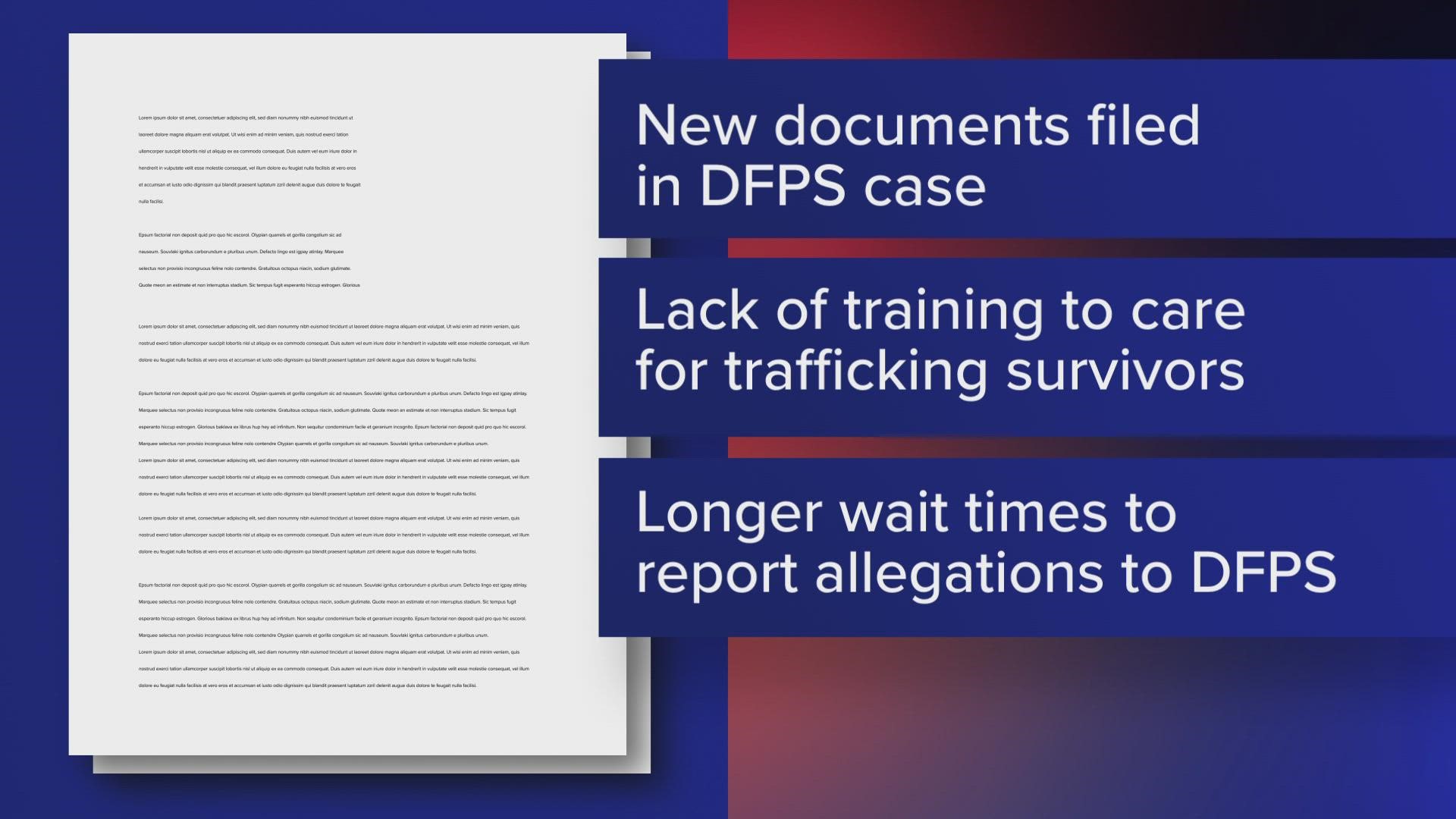AUSTIN, Texas — A bill filed in the Texas House would require a parent to be present while a child is being interviewed by social workers after reports of child abuse.
House Bill 63, filed by State Rep. Valoree Swanson (R-Spring), would not allow an anonymous report of child abuse. Instead, filing a report would require an individual to include their full name, personal phone number, address, where they work and title, how they came upon the facts of abuse and the name of the person who informed them.
Swanson said during a hearing Tuesday that Child Protective Services would keep the names and information confidential.
If a person used a toll-free number to report the neglect or abuse of a child that the Department of Family and Protective Services (DFPS) operates and the person reporting didn't want to identify themselves, under the bill, the DFPS would inform the individual that it will not accept their report.
If a report is made orally, an audio recording would be made of the report.
The only way a concerned resident would be able to report an anonymous report would be to call their local police department and file a criminal investigation report.
Once a report is made anonymously to the local police department and the investigation is referred to DFPS, under the bill, the department would conduct the preliminary investigation. The law enforcement agency would not be allowed to accompany the department on the visit.
The preliminary investigation would include:
- Visiting the child's home
- Interviewing the child, the parents and anyone believed to have relevant information
- Anyone else interviewed must consent to DFPS
During the investigation, DFPS would not be allowed to:
- Enter the home without the homeowner's permission
- Interview the child or the child's parents, or examine the child, without written consent from the parent
- Threaten or coerce the parent to consent to an interview
- Separate the child from the parents during the interview or exam, which must be visual
Unless DFPS determined that there was sufficient evidence to support a claim of abuse, the department would not be allowed to conduct further interviews or investigation.
Swanson said the bill will help cut down on intentional false reports.
The Texas House Human Services Committee heard public testimony on the bill Tuesday afternoon.
If HB 63 passes, it would take effect on Sept. 1.

